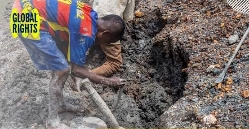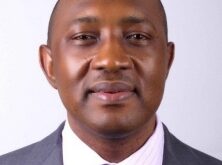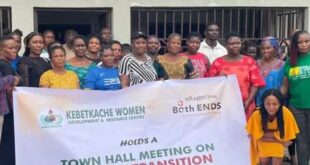By Kelechi Nwaucha
For over 50 years of oil exploration in Nigeria, more than 1.5 million tons of crude oil were spilled in the Niger Delta, leading to biodiversity loss, health crisis among the region’s over 30 million inhabitants, socio-economic tensions and an environment severely damaged.
Of note, however, is the growing threat in the mining sector, and it’s likely impact on mining host communities.
Following an over 30% spike in mining activities, in Nigeria’s quest to diversify revenue earnings from oil, host communities in the mining sector and their environment have began to show early signs of repeating the Niger Delta scenario. A situation that has seen mining communities in Nasarawa, Niger, Kogi and others record incidents of land degradation, water and soil pollution, lead poisoning (and blindness), among others.
These informed a training for journalists, drawn from various media and states across Nigeria, held in Abuja on May 9, essentially to create awareness and ultimately forestall a repeat of the Niger Delta experience in mining communities across the country.
Edosa Oviawe, Programs manager at Global Rights, organisers of the training, with support from Ford Foundation, said Nigeria faces the prospect of an environmental crisis that is ten times more than that in the oil and gas sector if urgent steps are not taken to address governance gaps in the mining sector.
He said this is “because the oil and gas is majorly situated in the Niger Delta, but the solid mineral is not so. Solid minerals are scattered across every part of the country. As a matter of fact, there are solid mineral deposits in every state in this country.
“And so if we don’t properly govern the solid mineral sector, if we leave it to be going the way it’s going, the environmental impact, the devastation we’ll get from this will be far, far more than what we’re having with the Niger Delta.
“That will mean that devastation will spread across every part of the country and so you end up having the environment degraded from the north to the south, from the east to the west of Nigeria and no part will be spared.”
Oviawe noted that the solid minerals sector in Nigeria “has suffered neglect over the time. Historically, we’ve seen how the sector has suffered neglect due to our over-concentration on oil in Nigeria. But this sector offers us an opportunity for growth, national growth and development over time.
“So the main essence of this training is actually to bring together journalists to critically understand the issues of mining and the rights of mining host communities across the country, to give them skills and knowledge, understanding of all the issues as it relates to the solid mineral sector in Nigeria.
“The way the solid mineral is currently governed in the country leaves a lot more to be desired. And so what we are doing is to say, to promote ethical mining across the country, to strengthen our governance of the sector. And that begins, of course, by us strengthening our laws, our regulations, our policies, and the way we do it.
“These extraction or destructive activities impact the environment, and so we should look at the environmental sustainability in this process, look at how to promote ethical mining in Nigeria so we sustain our environment, have environmental sustainability while still having good economic dividends from the sector,” he said.
Giving an insight into the health situation faced in mining communities in the country, Tsema Ede, Natural Resource Governance expert, drew attention to the reported death of 400 children in Zamfara as a result of lead poisoning, adding that over 60 children also died as a result of lead poisoning in Shikira community (Niger State).
This, she said, can be attributed to the fact that “the kind of gold that is mined in Nigeria is associated with lead. To process the gold, remember this is illegal mining, they need to process the lead and extract the lead from the gold.
“And most often, rural communities, because they are not knowledgeable on these things, they don’t understand how this is done, we find that they use their cooking pots, use their cooking pans, and process the things even in their homes, in their backyards.
“We’ve also found that because people are processing the lead, it now enters into their body, their bloodstream, and it becomes part of their DNA, so to speak. So what does this do? It also alters our bodies and the way our bodies function.
“We realize that a lot of women who process this illegally mined gold have lead going into their bloodstream.
“Only the future can tell what kind of children they will have as a result of lead poisoning, what kind of impact lead poisoning will have on them, their children and the environment as they continue to mine the galleys.
She noted the nexus between illegal mining and insecurity in Nigeria, while calling for a strengthening of the laws around artisanal and small-scale mining (ASM) in the country.
“Illegal mining, not mining, illegal mining, mining without a proper authorization from the Federal Government, has been linked to funding insecurity, supporting insecurity, and also increasing the risk susceptibility to insecurity in rural communities and volatile communities, as the case may be.
“Most often it is because these resources that are illegally extracted are sold, smuggled out of the country, sold outside of the country, and they are used to either purchase arms or fund terrorism in different ways.”
Part of the issues raised at the workshop were the need to address gaps in laws governing mining and strengthening enforcement of existing ones.
Emily Offodile, founder of Ziva Community Initiative, in a breakdown of the Nigeria Minerals and Mining Act 2007, examined the laws regulating mining in the country and their impact on host communities.
Among other issues, she called for a domestication of the Mineral Resources and Environmental Management Committee (MIREMCO), contained in the Act, by state governments across the country.
 PH Mundial – Port Harcourt Online Newspaper News Across The Region
PH Mundial – Port Harcourt Online Newspaper News Across The Region





